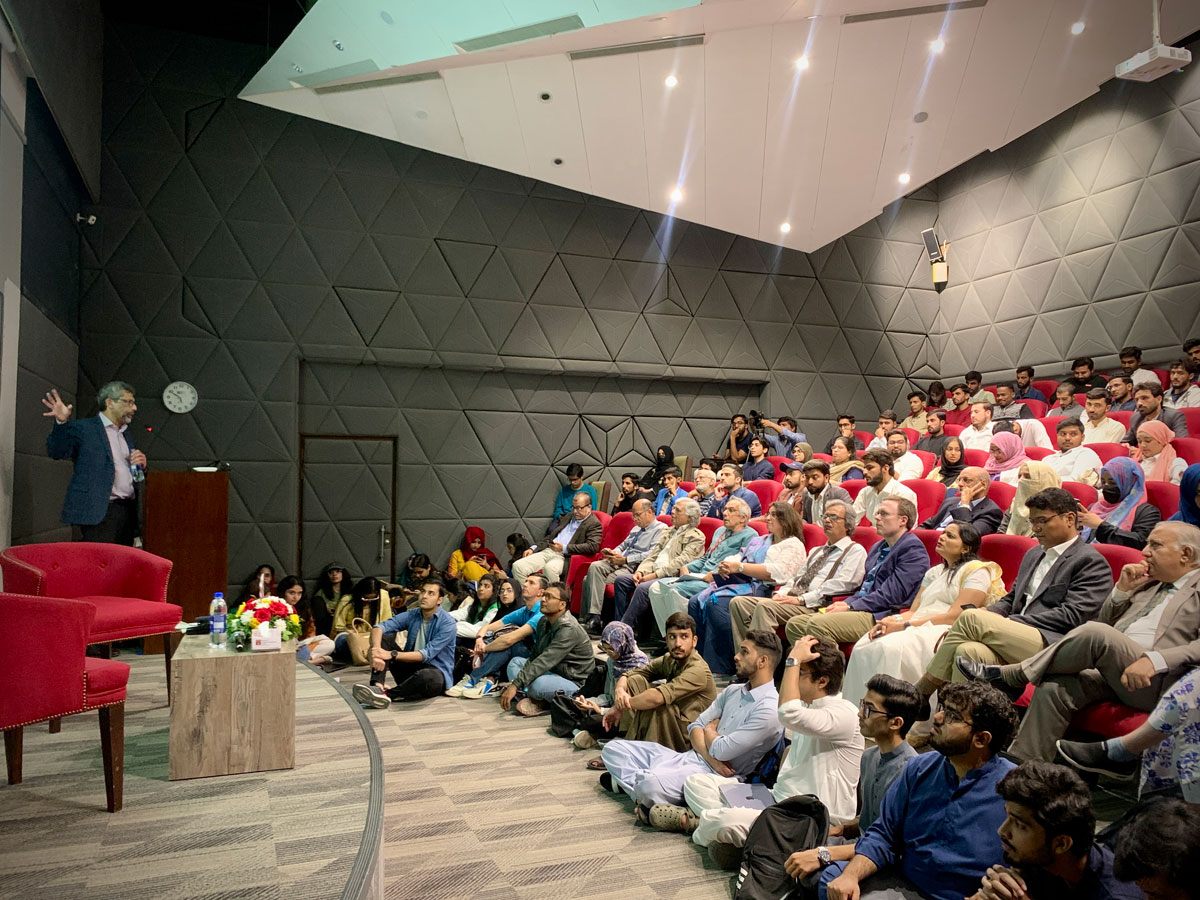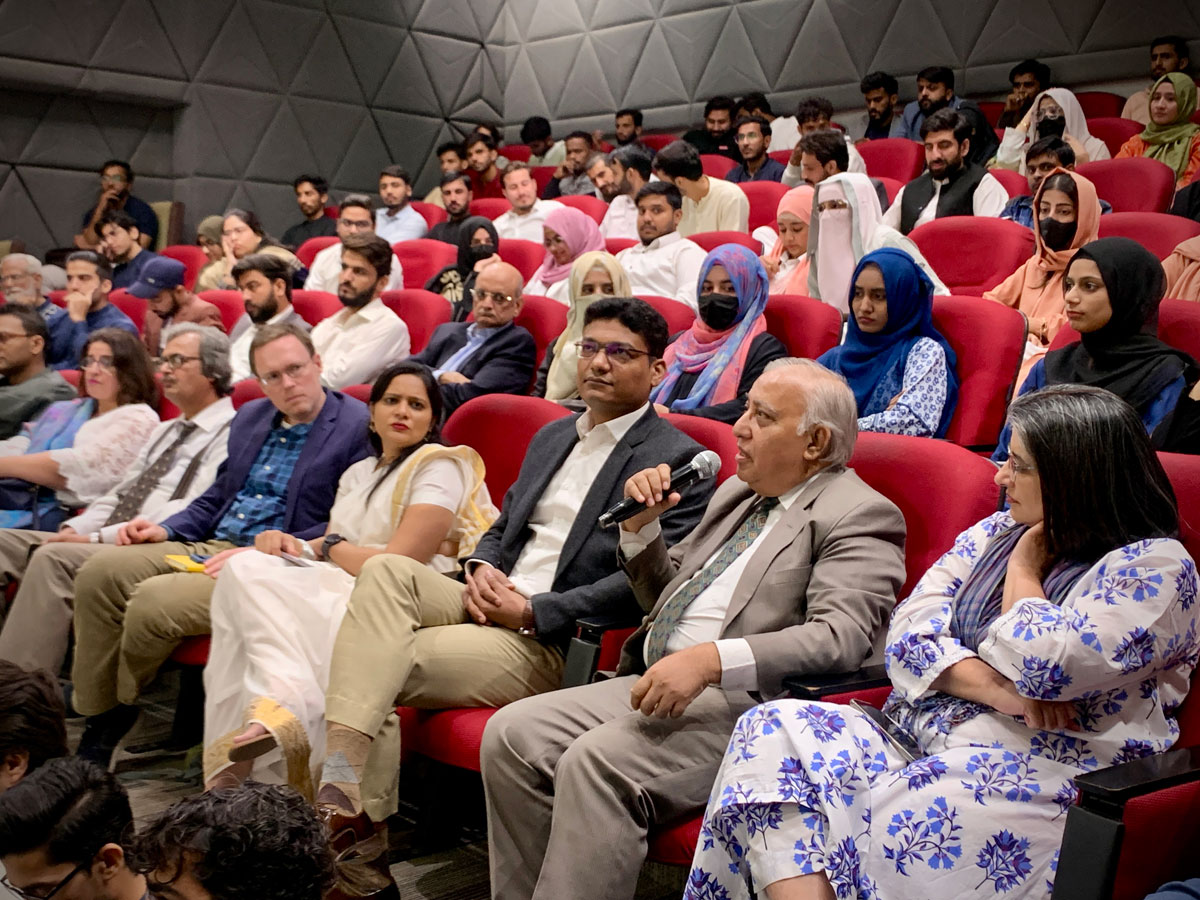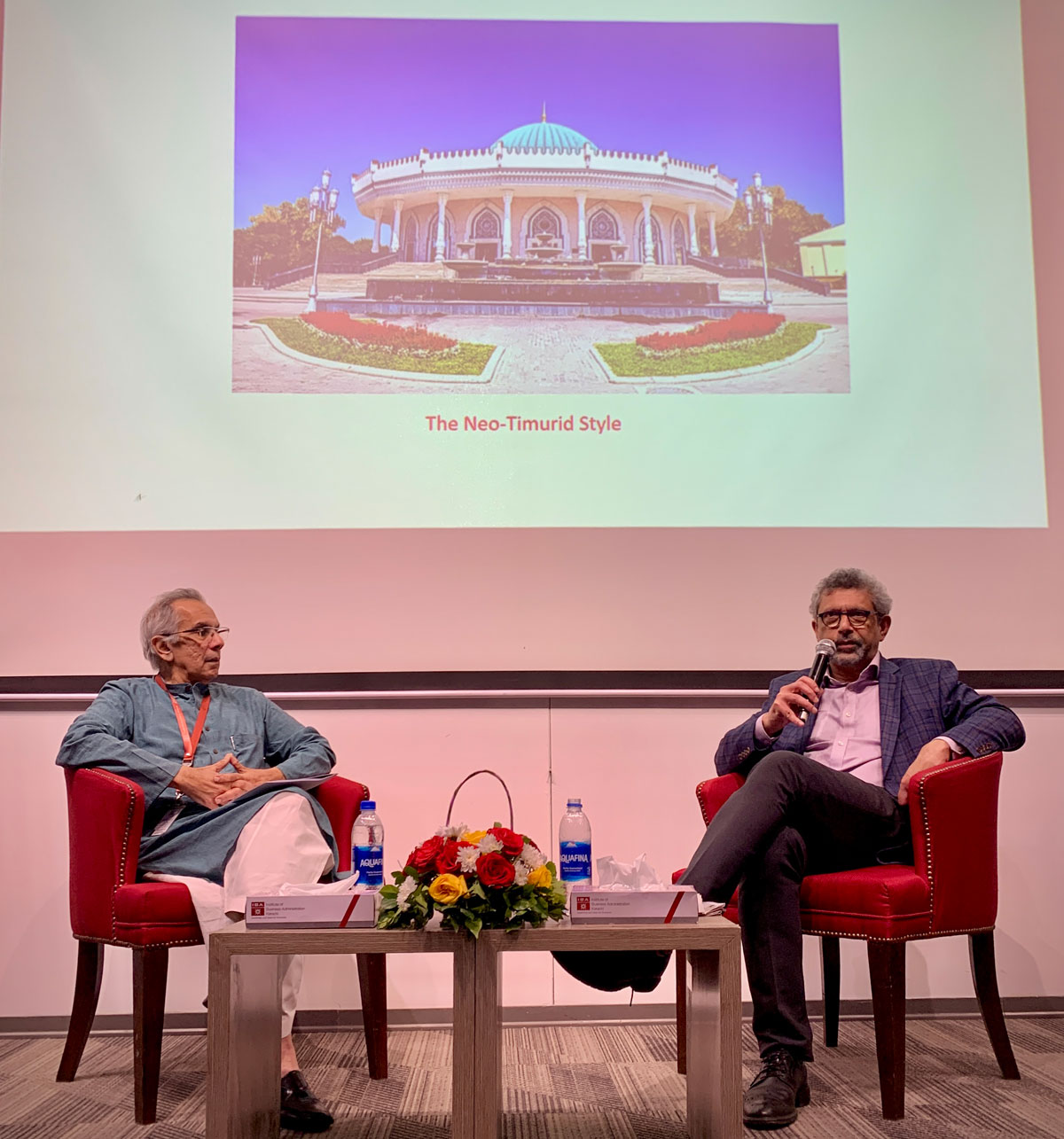IBA Karachi organizes a Public Talk on ‘Central Asia in the Modern Age: Patterns of Transformation’
December 08, 2023: The Institute of Business Administration (IBA), Karachi organized a public talk on ‘Central Asia in the Modern Age: Patterns of Transformation’ featuring Professor Adeeb Khalid, Jane and Raphael Bernstein Professor of Asian Studies and History and Chair of Department of History, Carleton College. As an eminent historian, Professor Khalid brings a wealth of expertise to unravel the complex tapestry of change in Central Asia. His extensive body of work encompasses four distinct books on Central Asia and the talk centered around his latest book.
This event marked a momentous occasion as it was his second professional talk in Pakistan, a country with a keen interest in the region’s historical narrative. The talk was attended by students, faculty, historians and prominent scholars.
Executive Director, IBA Karachi, Dr. S Akbar Zaidi welcomed Professor Khalid and invited him to shed light on Central Asia’s rich history and its impact on the world.
Professor Khalid thanked Dr. Zaidi and delved into the intricate historical patterns that have molded Central Asia over the years. His nuanced insights provided attendees with a comprehensive understanding of the region’s multifaceted transformation. Speaking about Central Asia’s global significance as well as its specific relevance to Pakistan, he said that South Asia had a strong link with Central Asia through trade and politics but by 20th century those ties severed.
He also shed light on the modern history of Central Asia as it is connected to a glorious past and has made a lot of differences and created transformations. Delving into the intricate historical patterns that have molded Central Asia over the years, the Professor’s deep insights provided attendees with a comprehensive understanding of the region’s multifaceted transformation. He discussed his historical works on the former Soviet republics of Kazakhstan, Turkmenistan, Uzbekistan, Xinjiang, Tajikistan and Kyrgyzstan and how they all had their own distinct identities.
Focusing on the last 250 years of Central Asia, he spoke about the two major migrations and the Russian revolution which took place in 1917. He also highlighted the collapse of the Soviet Union in 1991 and the emergence of the Central Asian countries as significant countries.
Discussing the intricacies of Socialism and the Soviet state, he shed light on how the Soviet regime was anti-religion and anti-Islamic and mosques were shut down for about fifteen years. Though Islam did not disappear, but it went underground. It was practiced privately, but no active observance and transferring of knowledge took place for three generations which caused a gap and was problematic. He also discussed different political movements including Jadidism. He further said that Central Asia’s heritage consists of rich history and it is greatly influenced by different nationalities and civilizations.
Highlighting the cities of Samarkand and Bukhara, Professor Khalid opined that the cities have witnessed a glorious past along with some difficult periods.
A Q&A session ensued.
The talk successfully bridged the gap between academia and public understanding, offering a unique perspective on the region’s evolution.



